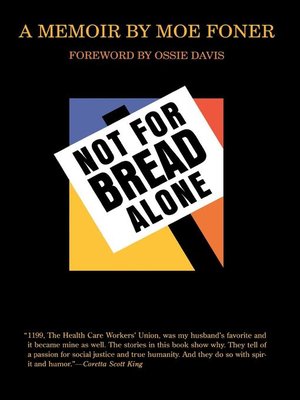
Sign up to save your library
With an OverDrive account, you can save your favorite libraries for at-a-glance information about availability. Find out more about OverDrive accounts.
Find this title in Libby, the library reading app by OverDrive.



Search for a digital library with this title
Title found at these libraries:
| Loading... |
"I operated under the theory that a good union doesn't have to be dull."—Moe Foner
"Don't waste any time mourning—organize."—Joe Hill
Moe Foner, who died in January 2002, was a leading player in 1199/SEIU, New York's Health and Human Service Union, and a key strategist in the union's fight for recognition and higher wages for thousands of low-paid hospital workers. Foner also was the founder of Bread and Roses, 1199's cultural program created to add dimension and artistic outlets to workers' lives.
Foner produced a musical about hospital workers; invited Woody Guthrie and Pete Seeger to perform for workers and their children; presented stars such as Ossie Davis and Ruby Dee, Sidney Poitier, Harry Belafonte, and Alan Alda; and installed the only permanent art gallery at a union headquarters. One of Foner's last projects was a poster series called "Women of Hope," which celebrates African American, Native American, Asian American, and Latina women including Maya Angelou, Maxine Hong Kingston, Septima P. Clark, and the Delaney sisters Sarah and Elizabeth. Today his legacy is the largest and most important cultural program of any union.
Not for Bread Alone traces Foner's development from an apolitical youth whose main concerns were basketball and music to a visionary whose pragmatism paved the way for legislation guaranteeing hospital workers the right to unionize. Foner writes eloquently about his early life in Brooklyn as the son of a seltzer delivery man and about many of the critical developments in the organization of hospital workers. He provides an insider's perspective on major strikes and the struggle for statewide collective bargaining; the leadership styles of Leon Davis, Doris Turner, and Dennis Rivera; and the union's connection to key events such as the civil rights movement and the Vietnam War.






